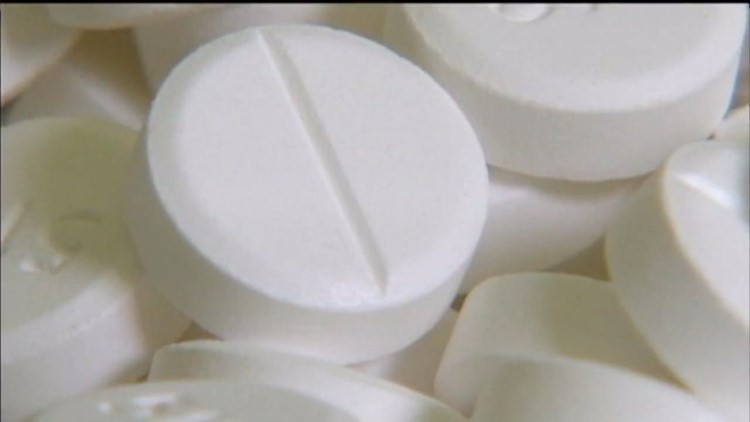Wolf Administration Awards $4 million in Grants for Medication-Assisted Treatment Programs to Battle Addiction Epidemic
Harrisburg, PA – The Wolf Administration today awarded $1 million grants to four organizations to build medication-assisted treatment programs for Pennsylvanians suffering from the disease of addiction. The announcement was made at Pennsylvania Psychiatric Institute, a collaboration between Penn State Health and UPMC PinnacleHealth Systems.
Grants also were awarded to the Allegheny Health Network, Geisinger Clinic, and Wellspan Health.
“Medication-assisted treatment helps someone suffering from the disease of addiction to recover from their illness,” Governor Wolf said. “Through these grants, we can expand access to this treatment to all Pennsylvanians in their own communities through a ‘hub-and-spoke’ network of health care providers.”
Pennsylvania’s hub-and-spoke model has an addiction specialist physician at the center as the hub, providing expert guidance and support to primary care physicians in rural and underserved areas of the state who serve as the spokes. The primary care physicians will provide the direct-patient care, including the medication-assisted treatment prescription. Patients also will be connected to drug and alcohol counseling in their communities.
“It’s clear that Pennsylvania needs a new and comprehensive approach to this disease,” said Dr. A. Craig Hillemeier, CEO of Penn State Health, dean of Penn State College of Medicine and Penn State’s senior vice president for health affairs. “We know from research that when treatment includes both medication and therapy, patients do better. And when patients do better, families and communities do better.”
“In 2016, the Wolf Administration secured funding for Centers of Excellence (COE) across the commonwealth focusing on evidence-based medication-assisted treatment to combat the opioid epidemic,” Acting Secretary for Human Services Teresa Miller said. “While the COEs serve individuals primarily on Medicaid, today, these grants will broaden access to commercially insured individuals to ensure that all Pennsylvanians have access to high-quality treatment that focuses on the whole person.”
“These grants will provide more primary care physicians with the support they need to prescribe medication-assisted treatment to their patients,” Acting Secretary of Health and Physician General Dr. Rachel Levine said. “These grants will lay the groundwork for patients to receive quality addiction treatment in their community.”
“Pennsylvania continues to battle the heroin and opioid crisis head-on and these grants will expand access to Medication Assisted Treatment, helping to treat individuals suffering from substance use disorder,” said Acting DDAP Secretary Jennifer Smith. “At a time when we are losing 13 Pennsylvanians each day to overdoses, increasing access to care is a top priority of the Wolf Administration.”
The grants are funded through the 21st Century Cures grant, a $26.5 million federal grant received by the Wolf Administration to combat the heroin and opioid epidemic by increasing access to treatment, reducing unmet treatment need, and reducing opioid overdose-related deaths through the provision of prevention, treatment and recovery activities for opioid use disorder. Twenty-three organizations applied.
The Wolf Administration holds the fight against heroin and prescription opioids as a top priority. To continue the battle against the opioid epidemic in Pennsylvania, Governor Wolf, working with the General Assembly, has included the following in the 2017-18 budget:
• Expanding access to life-saving naloxone by providing $5 million through the Pennsylvania Commission on Crime and Delinquency to first responders, law enforcement, and other public entities across the commonwealth;
• Maximizing federal 21st Century Cures Act funding, which includes $26.2 million in each of the next two years for Pennsylvania, to expand access to treatment services, particularly for individuals who are uninsured or underinsured; and
• Providing $2 million to expand specialty drug courts to expand treatment strategies that divert offenders into more meaningful treatment and recovery.
Some of the administration’s other initiatives to fight the opioid epidemic include:
• Working with the legislature to establish a new law limiting the number of opioids that can be prescribed to a minor and to individuals discharged from emergency rooms to seven days;
• Strengthening the Prescription Drug Monitoring Program (PDMP) through the legislative process so that doctors are required and able to check the system each time they prescribe opioids and benzodiazepines;
• Increasing the number by 25 of rural Medicaid providers who are able to prescribe MAT through funding from a federal grant;
• Forming new prescribing guidelines to help doctors who provide opioid prescriptions to their patients, including guidelines specific to orthopedics and sports medicine;
• Creating the warm handoff guideline to facilitate referrals from the emergency department to substance abuse treatment;
• Teaming with the legislature to establish education curriculum on safe prescribing for medical schools;
• Educating and encouraging patients to properly use, store and dispose of unused prescription medications through drug take-back initiatives, and expanding the number of drug take-back locations to more than 600; and
• Increasing the availability of naloxone.
SOURCE: Governor’s Office of Communications



